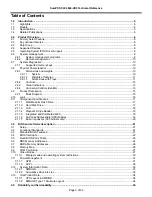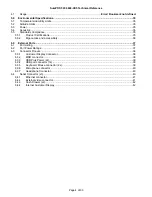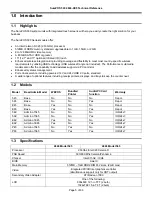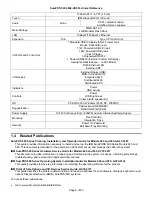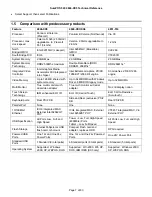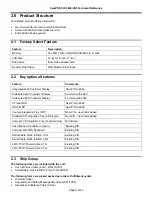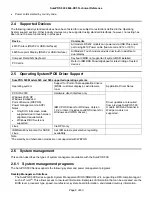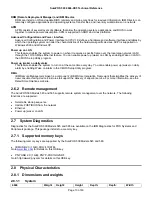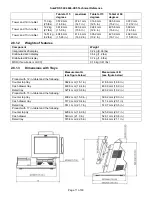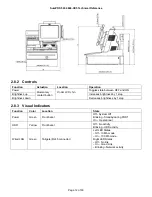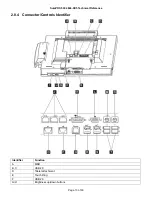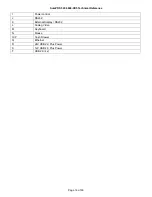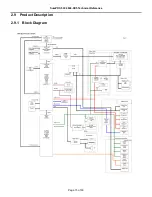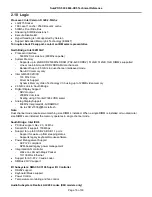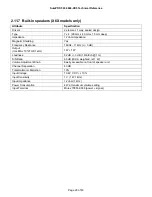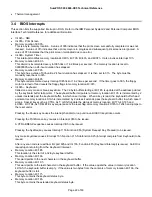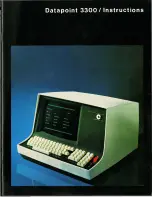
SurePOS 500 4846-XX5 Technical Reference
Page 9 of 63
•
Power cord selected by country code
2.4 Supported
Devices
The following industry standard devices have been tested for use subject to restrictions defined in the Operating
System support section. Other industry devices may be supported using standard interfaces; however, no testing has
been done to insure functionality in all aspects.
Device Comments
4610 Printers (RS232 or USB interfaces)
All models. RS232 models can powered via USB Plus power
port using 4810 Power cable (feature code 3912 or 3913)
4820 Surepoint Display (RS232 or USB interface)
All Models. Touch models provide dual touch in addition to
dual display.
Compact Retail A/N Keyboard
Keyboard MSR not supported if system MSR installed
PC Cards
Refer to IBM RSS Knowledgebase for latest listing of tested
devices
2.5 Operating System/POS Driver Support
SurePOS 500 Models 545 and 565 supported operating systems
Operating system
Support for Point of Sale application drivers
(MSRs, customer displays, cash drawers,
tone)
Application Driver Notes
PC DOS 2000
Hardware direct interface only
Windows 2000, XP
Windows Embedded
Point of Service (WEPOS)
Power management via ACPI
Notes:
•
Only DOS full screen mode
supported due to touch screen
alignment requirements.
•
Windows DBCS versions
supported.
IBM UPOS Drivers for Windows, Version
1.9.2 or later. (Includes JavaPOS drivers for
Windows and OPOS drivers.)
Driver updates are required
from previous SurePOS 500
models. MSR and Scanner in
Wedge mode is not
supported.
Linux
Via RPQ only
IBM Retail Environment for SUSE
Linux
Ask IBM sales representative regarding
availability
Note:
1
The standby and hibernation modes are not supported with WEPOS.
2.6 System
management
This section describes the types of system management available with the SurePOS 500.
2.6.1 System
management
programs
The SurePOS 500 Series supports the following system and power management programs:
Desktop Management Interface
The SurePOS 500 Series supports System Management BIOS (SMBIOS) v2.4, supporting a DMI-compliant agent
such as Tivoli
(R)
. This allows access to low-level information. Examples of information that can be accessed are the
BIOS level, processor type, speed, manufacturer, system-board information, and detailed memory information.



